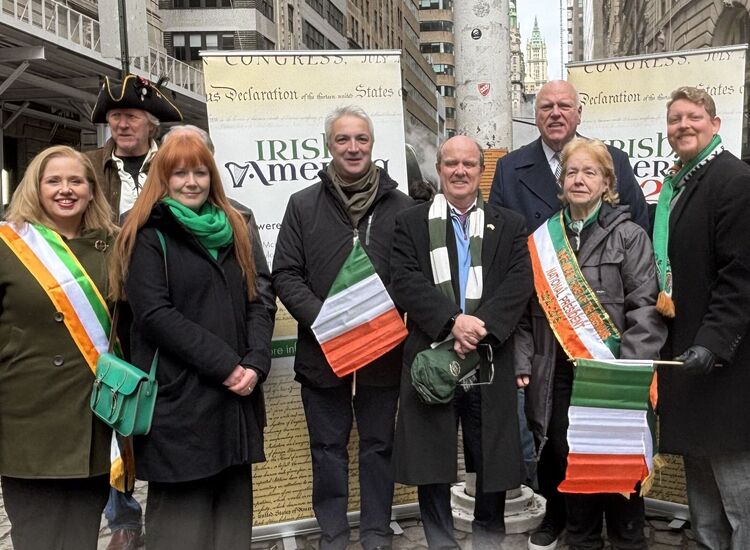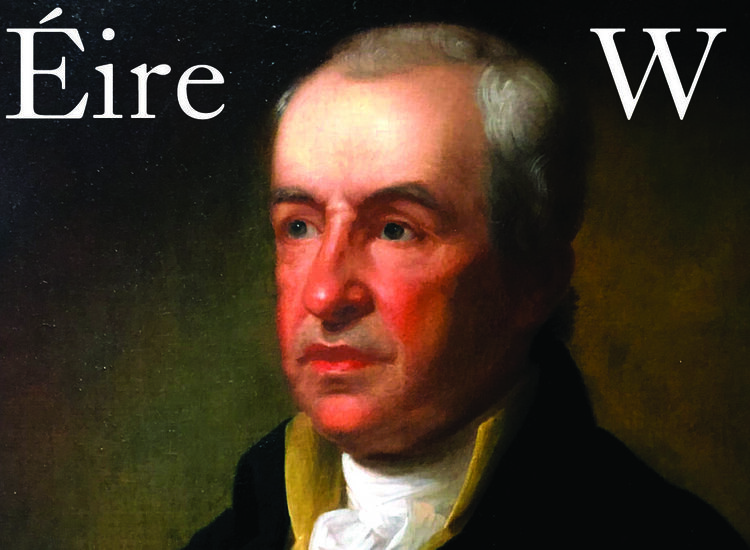[caption id="attachment_70820" align="aligncenter" width="600" caption="Rory Staunton."]
I went to a lot of funerals over the Easter break. On Easter Saturday the life of Annie Stone, a stalwart from Ballymurphy and a hero of mine was to be celebrated at a service in Saint John's Church on the Falls Road.
I was at a funeral on Good Friday, as well. Seamus Wilkinson, a neighbor of ours and a decent man passed away in his ninety fifth year. I liked Seamus. He was a non-pretentious man with a very wide welcoming smile, who loved gardening.
Of course there was more to him than that but by the time I met Seamus and his wife Theresa they were in their sixties. Those were difficult times in Belfast and I was home even less often than in these more peaceful times.
We would bring Seamus and Theresa the occasional pot of soup, or some scone bread and apple cake. He was always very generous with biscuits and sweets for the girls. He and I would discuss his colorful-all-year-round garden, dogs, the weather, or the fortunes or misfortunes of Antrim's senior teams.
So I was sad at Seamus's funeral. But there was a sense of completeness, a sense of a full span about it. Annie Stone or Ma Stone's service was, as befitted her life, a cheerful affair.
Born in South Armagh and married in Belfast, Ma Stone was one of the earliest residents in Ballymurphy. She and her late husband reared a family of nine. It was the best of times and the worst of times. One of Ma Stone's sons, Liam, spoke at her service. He did his mother proud. I am glad I was there as he reminded us of how his ma helped found the Ballymurphy Tenants Association.
He described her as social as well as socialist. She stood up for her community and her gender. Full of craic, and ready for a singsong or a laugh, or to fight for a good cause, Ma Stone's big touchstones were heritage, sense of place, fairness and identity.
"Seize life with both hands," she told her brood; "enjoy it, no matter how tough or hard it is make the most of it."
Liam also told us not to take for granted that the young ones today understand what the women of Ballymurphy went through during the decades of grinding poverty and military occupation.
"Tell them," he encouraged us, "tell their stories with pride."
Outside, before Annie journeyed up the Falls Road for the last time, her family gathered around her tricolor-draped coffin, unfurled the Armagh flag and uplifted us all with a rousing chorus of the "Boys of the County Armagh."
I left Annie that day as I left her on many other days when I bumped into her in the Murph. With a smile. Teary eyed because she has gone. But smiling nonetheless.
Easter Monday was a very different affair. Young Rory, the fine and happy son of our friends Ciaran and Orlaith Staunton, who I last saw in the White House with his father, and before that on the streets of Drogheda during last year's general election.
Ruairi, all twelve years of him, was back home from New York to be buried on Easter Monday with his Nana in the rich clay of County Louth. So Monday's funeral was fraught and sad beyond measure, replete with hurt, bewilderment and grief and communal love and solidarity for Orlaith and Ciaran and Ruairi's sister, Kathleen.
The Taoiseach was there. So was Deputy First Minister Martin McGuinness. Rory fell in his school in New York. He cut his arm. Toxic poisoning set in soon afterwards and his poor wee body went into toxic shock.
So this little boy, born in New York to emigrant parents and reared between there and Mayo and Louth, this little boy, full of potential and possibility, this wee boy is gone.
His family are desolate, beside themselves with the loss of their beloved son. There is no rhyme or reason to it, only hurt and anger and sadness.
And later, I am heading through Meath on the way home from the funeral of Barney McKenna, a founder member of the legendary Dubliners was laid to rest in the town of Trim.
Barney of the tenor banjo and the nimble music filled fingers. His funeral reflected his life and the way he had lived it. With good music and funny stories. There was a wonderful mass of musicians assembled beside the altar. During the Offertory Procession they played the "Fiddlers' Green."
The congregation joined in. It was mighty. "Fiddlers' Green is the place I've heard tell, where old fishermen go when they don't go to hell. Where there's pubs and there's clubs. And there's ladies there too. And the cold coast of Greenland is far, far away.
It was like a holy fleadh. And at the end, as Barney was carried up the aisle, the assembled musicians broke into a lively set of jigs and reels. And the rest of us clapped along. So to Barney's clan and the clans of all these good people, I send love and solidarity. Go ndeanfaidh Dia trocaire oraibh.
Four funerals in three days. This was more than I am used to attending since the war ended. And only it was the Easter break I probably might not have made it.
Except to Rory's. Three of these services were celebrations of life, uplifting and fitting tributes. But Rory's was real bereavement. His was the saddest of all. And that's how it should be. God be with his parents and Kathleen.
What was it Ma Stone said? "Seize life with both hands."









